The Thing
James T. Hong
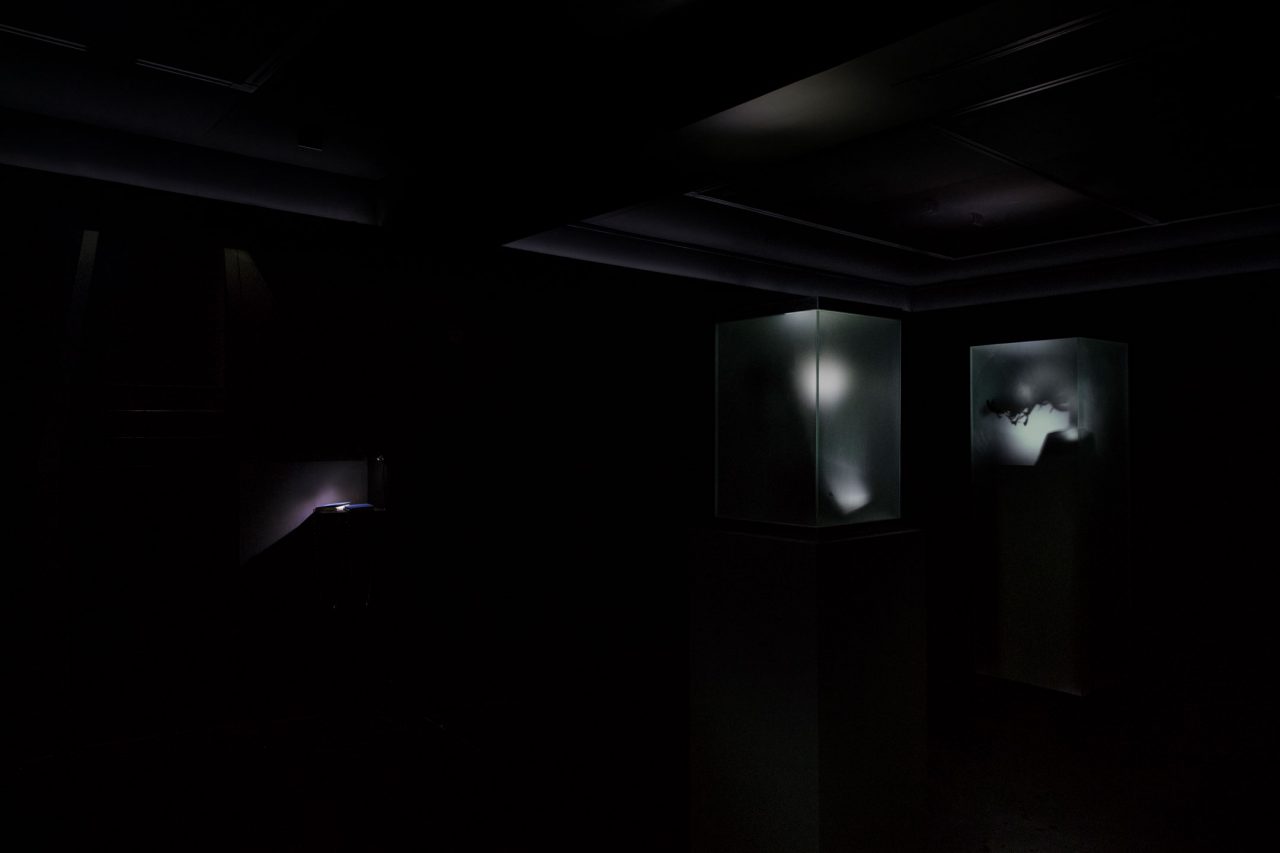
“The Thing: James T. Hong” installation view at Empty Gallery, 2019
Courtesy of the artist and Empty Gallery
Photo: Michael Yu
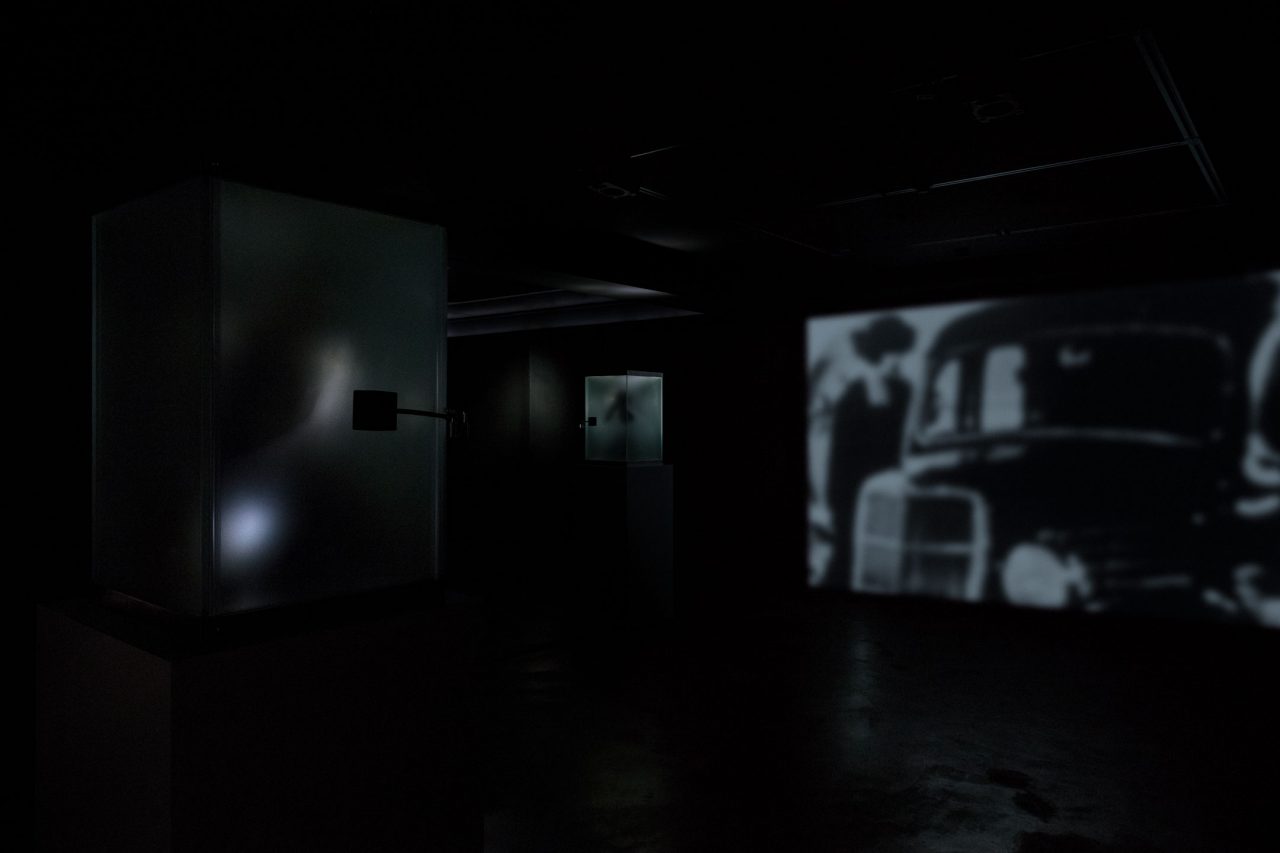
“The Thing: James T. Hong” installation view at Empty Gallery, 2019
Courtesy of the artist and Empty Gallery
Photo: Michael Yu
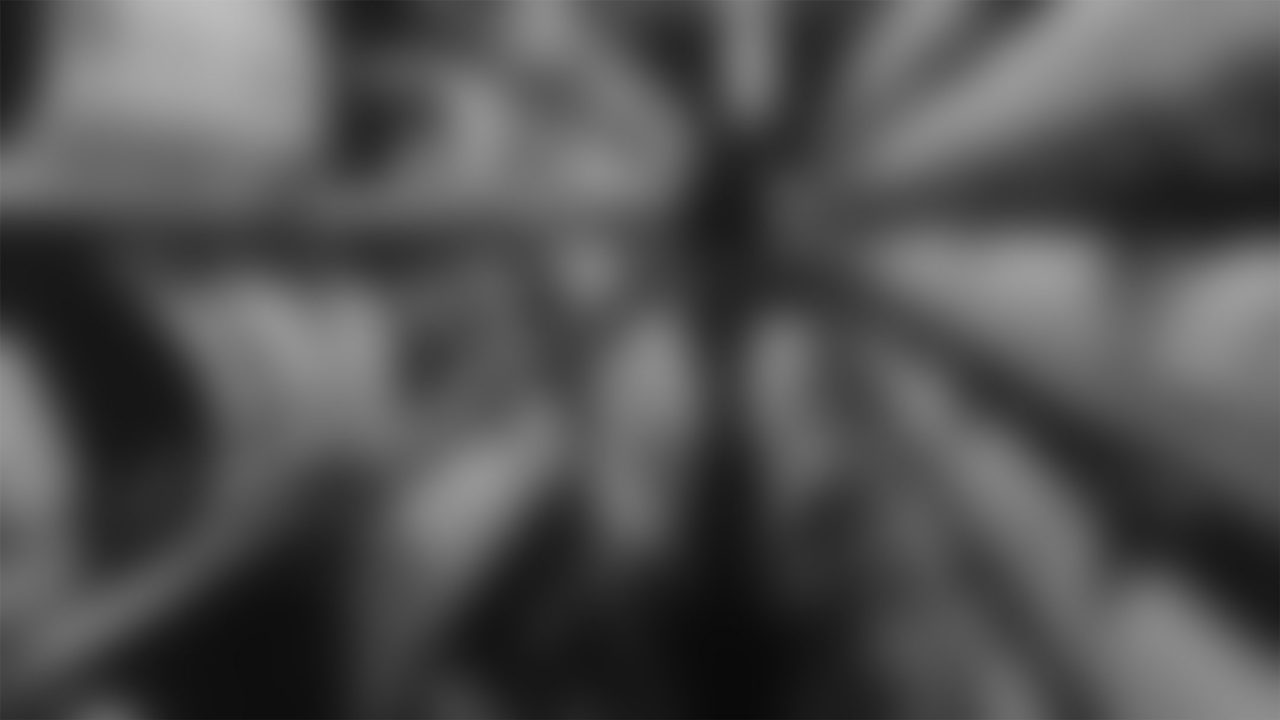
James T. Hong, The Video of The Thing, 2019, still. “The Thing: James T. Hong” installation view at Empty Gallery, 2019
Courtesy of the artist and Empty Gallery
Photo: Michael Yu
Image courtesy of the artist and Empty Gallery.
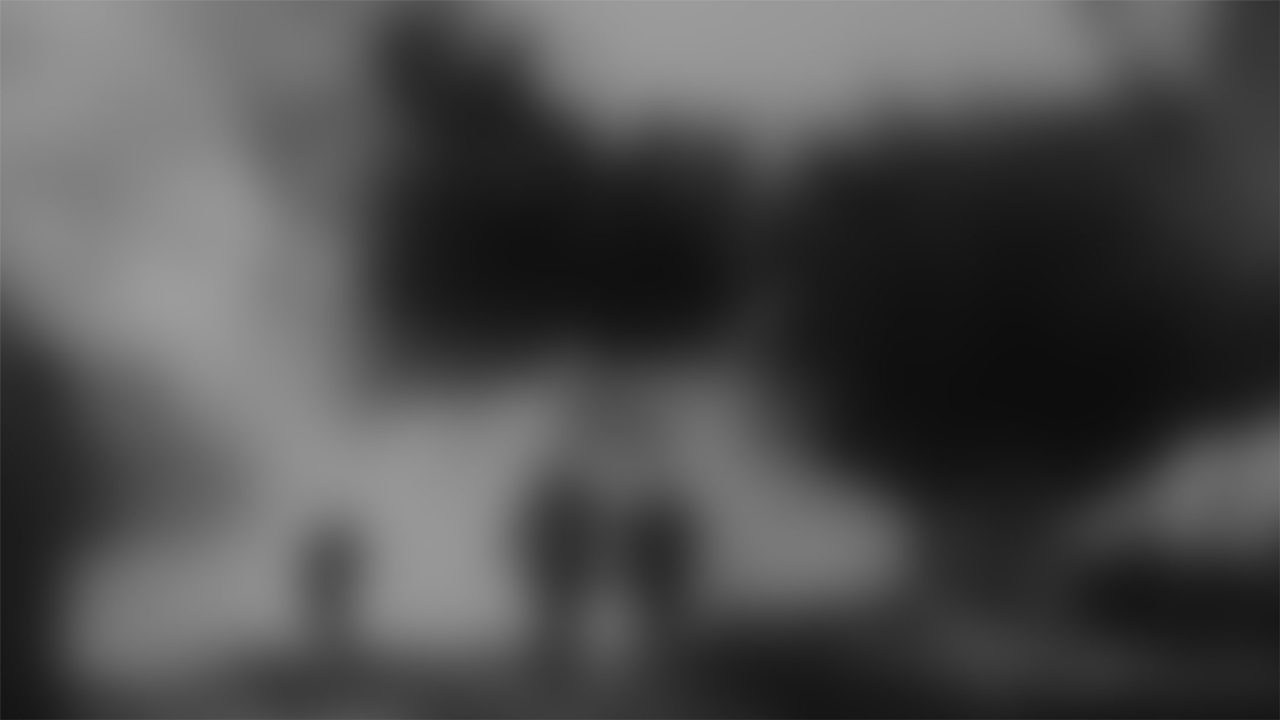
James T. Hong, The Video of The Thing, 2019, still. “The Thing: James T. Hong” installation view at Empty Gallery, 2019
Courtesy of the artist and Empty Gallery
Photo: Michael Yu
Image courtesy of the artist and Empty Gallery.
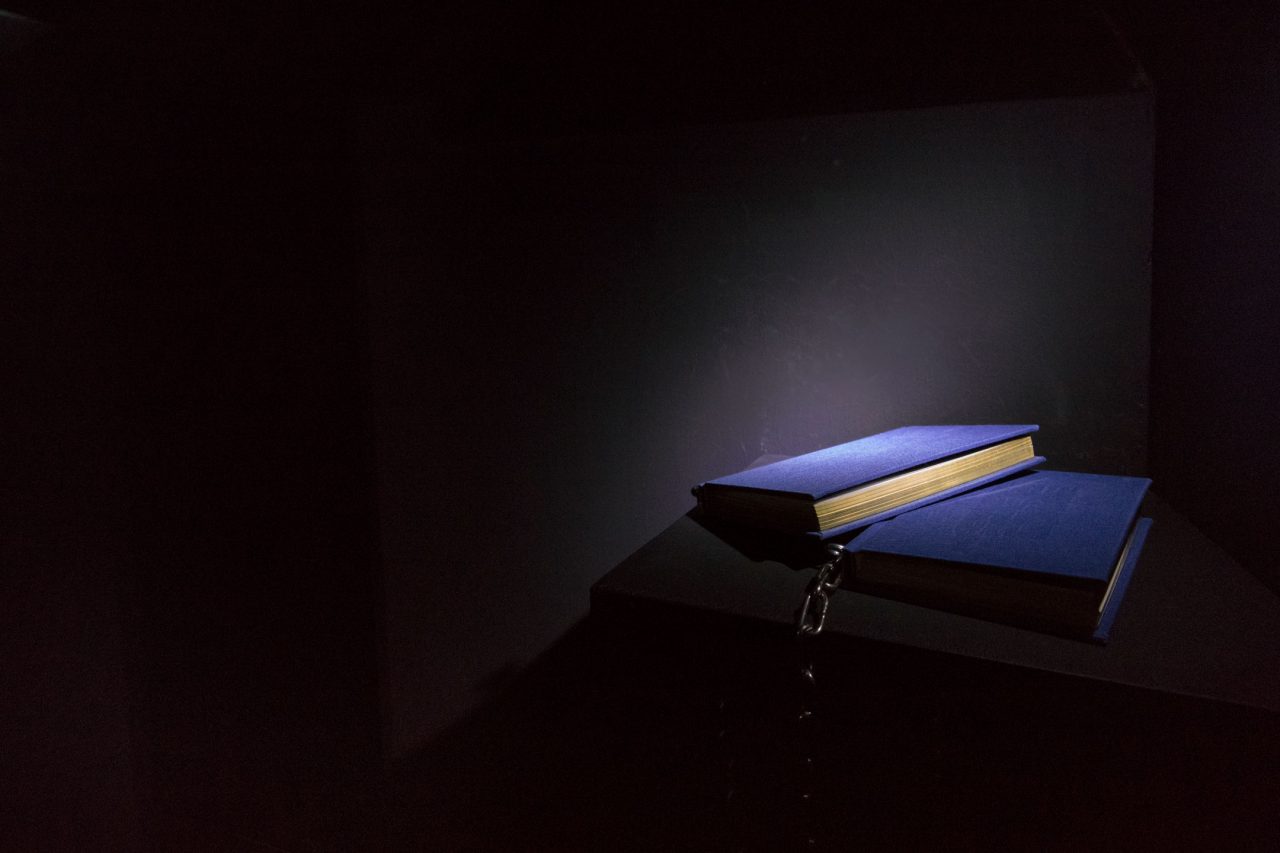
James T. Hong, The Book of The Thing, 2019. “The Thing: James T. Hong” installation view at Empty Gallery, 2019
Courtesy of the artist and Empty Gallery
Photo: Michael Yu
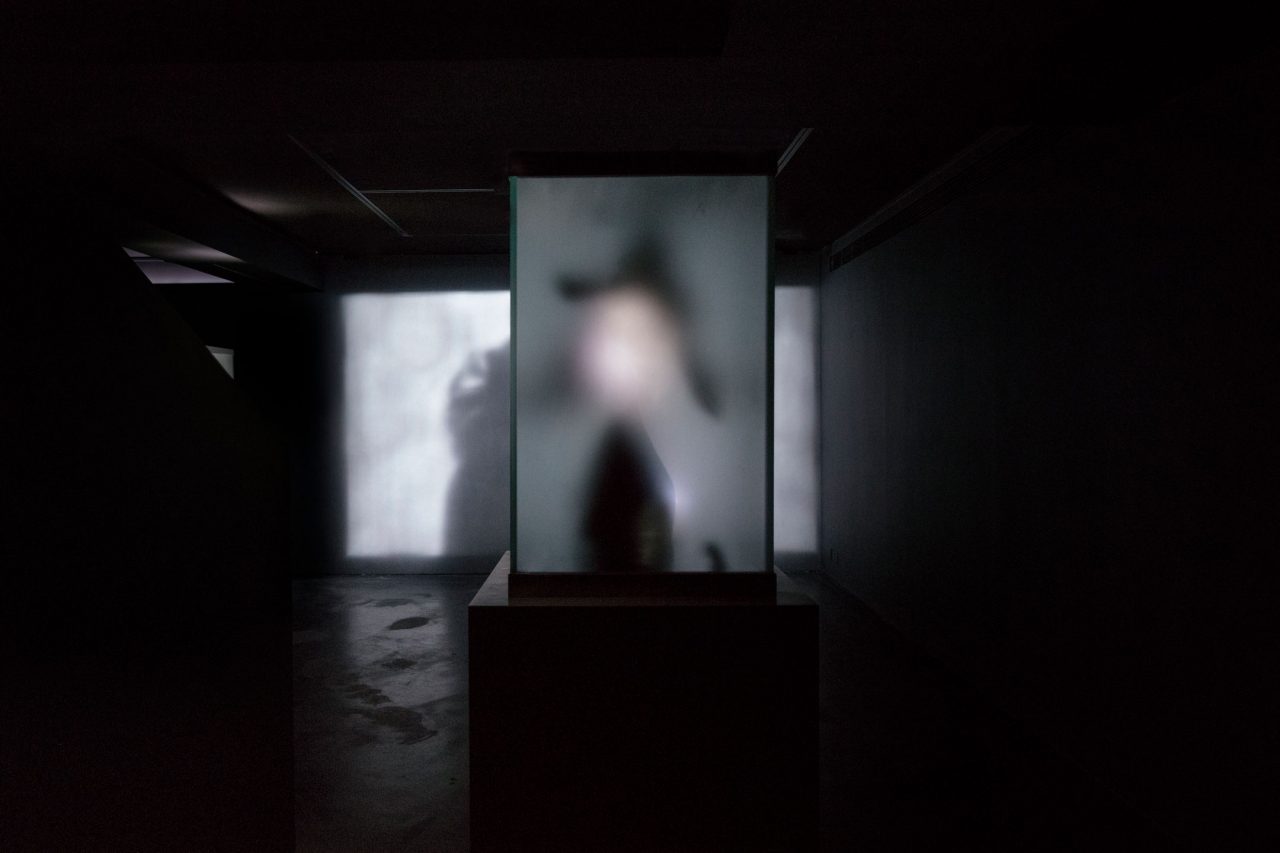
“The Thing: James T. Hong” installation view at Empty Gallery, 2019
Courtesy of the artist and Empty Gallery
Photo: Michael Yu
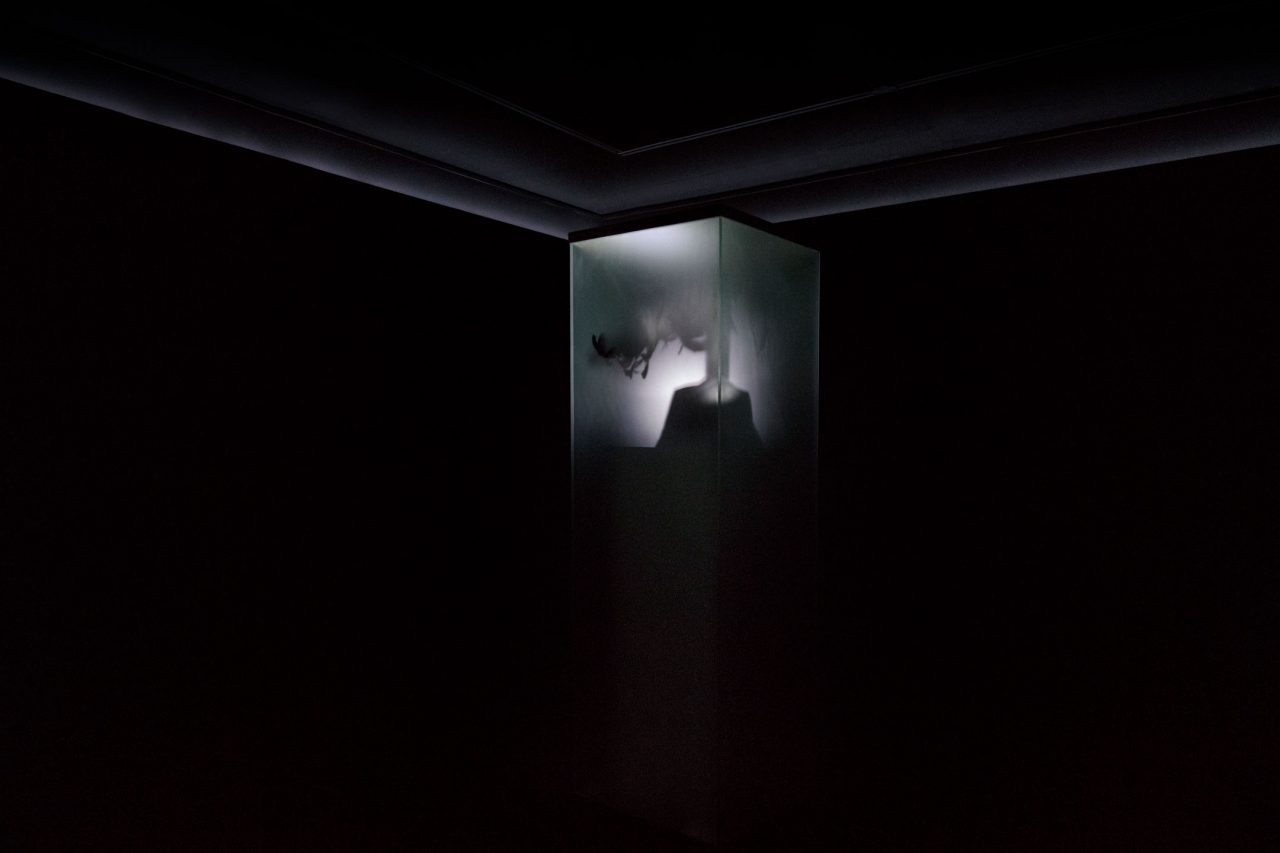
“The Thing: James T. Hong” installation view at Empty Gallery, 2019
Courtesy of the artist and Empty Gallery
Photo: Michael Yu
“The social totality can only be sensed, as it were, from the outside, like a skin at which the Other somehow looks, but which we ourselves will never see. Or it can be tracked, like a crime, whose clues we accumulate, not knowing that we are ourselves parts and organs of this obscenely moving and stirring zoological monstrosity.”
– Fredric Jameson
Empty Gallery is pleased to present The Thing, Taiwanese-American filmmaker and artist James T. Hong’s first solo exhibition in Hong Kong. Hong’s research-based practice often operates along the fraught intersection of epistemological and socio-political questions, interrogating the manner in which knowledge is produced, disseminated, and manipulated in the service of power. The Thing takes his idiosyncratic reading of John Carpenter’s cult 1982 science-fiction horror film as a point of departure, exhuming and assimilating diverse theories of “thingness” from the history of Western philosophy within a series of enigmatic new sculptures, video and sound works. The exhibition is accompanied by The Book of the Thing: Remarks on Politics, Art, Morality, and Taiwan, a short publication cum manifesto in which Hong addresses the aforementioned subjects through a series of sardonic, topical, and occasionally self-lacerating aphorisms.
Despite the efforts of countless thinkers, the simple everyday question of “thingness” – or the means by which an external object can manifest itself to consciousness – has remained contested ground for millennia. For Hong, the perpetually inaccessible object haunts the history of Western thought – like a scab which can be picked at, but never entirely healed. This state of affairs finds its logical parallel in our contemporary climate of misinformation, in which our field of perception is so clouded, manipulated, and narrowed by the dubious truth claims of various media that we can react only by doubting everything, or more commonly, retreating into false certitude; unable to distinguish truth from fiction or to address our own complicity in the maintenance of the status quo. Everyday life has thus come to resemble an intractable philosophical problem; but what responsibility does the average person have to try and solve this problem?
The primary means that Hong has chosen to articulate these questions are a series of three sculptures – The Thing and two Other Things – interspersed throughout the 18th floor gallery. Recalling a glass-walled cubicle, a biological specimen container, or a museum display case, these locked vitrines each contain and obscure a mysterious object whose identity remains unknown to all but the artist. Experienced only as enigmatic silhouettes – quietly menacing presences lurking beyond membranes of glass and stainless steel – the “things” effectively function as symbolic vacuums. Containing both everything and nothing – or precisely whatever content the viewer projects into them – they invite the beholder to speculate not so much on their actual identity as objects, but on their own perceptual inavailability and the limits of knowledge. These themes are mirrored in an accompanying video work entitled Video of The Thing (2019) in which Hong obfuscates and processes footage from his own early work, The Spear of Destiny: A Film For Everyone and No One (2003).
Reanimating the occidental fixation on the inaccessible, opaque and fundamentally misrecognized object of consciousness for a contemporary moment suffused by paranoia, misinformation, and cynicism, The Thing attempts to speculate on the difficulty, (perhaps impossibility) of genuine knowledge or moral action under the increasingly bleak conditions of global modernity. As with elsewhere in his oeuvre, Hong’s work can sometimes seem to be a deliberate exercise in viewer frustration. However, by provoking this frustration, he perhaps aims to instantiate, albeit negatively, a grasping or searching beyond received knowledge and a critical reflection on the “truths” which have formed us.
James T. Hong has been producing thought-provoking and occasionally controversial works for over twenty years. In 2012, Hong premiered a short doc at IDFA (International Documentary Festival Amsterdam) and co-curated a section of the Taipei Biennial. In 2013, he premiered two works at the Berlin International Film Festival (Berlinale) and was a guest artist/speaker at the Haus der Kulturen der Welt (HKW) and other international art spaces in Europe and the USA. In 2014, Hong exhibited a number of works in Hong Kong, Taipei, and San Francisco and at the Hamburg Kunstverein in Germany, the Central Academy of Fine Arts in China, and the Mediacity Seoul Biennial in South Korea. In 2015, his multimedia installation about the Opium Wars was exhibited in Taiwan, Hong Kong, and South Korea. In 2016, Hong premiered a new documentary at the Berlinale, Kiev Biennial, and Image Forum in Japan. Throughout 2016, Hong participated in visual art shows throughout East Asia, and he premiered a lecture/performance installation about Friedrich Nietzsche at the Taipei Biennial. In 2017, Hong presented films or other works at the Guggenheim Museum in New York, HKW and Württembergischer Kunstverein in Germany, and Asakusa in Tokyo. Hong also inaugurated the 2017 e-flux lecture series in NYC. In 2018, Hong premiered an abbreviated, installation version of his 2016 Nietzsche work at the Institute of Contemporary Arts in Singapore, curated the 9th Taiwan Experimental Media Festival in Taipei, and premiered a new documentary about biological warfare at the Busan International Film Festival where it won Best Documentary (Mecenat Award). James T. Hong lives and works in Taipei.